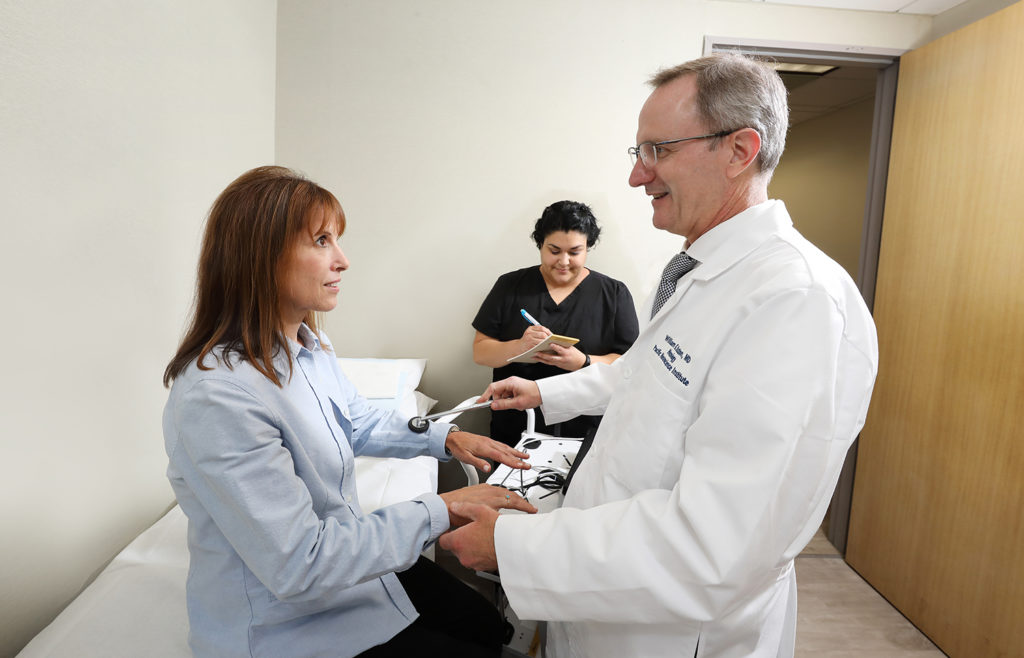
Neuromuscular Disorders
What are Neuromuscular Disorders?
Neuromuscular disorders, also known as neuromuscular diseases, encompass a group of medical conditions characterized by dysfunction or damage to the nerves that control voluntary muscles and the muscles themselves. These disorders can affect various components of the neuromuscular system, leading to impaired muscle movement, weakness, muscle wasting, and other related symptoms.
Nerves and muscles affect our bodies in many more ways than just moving limbs, fingers, and toes, and allowing us feel things. They play a crucial role in standing, walking, maintaining balance, and for brain health, exercise is one of the best ways to protect our brains against future memory problems.
In addition, we partner with an exercise scientist, a trainer, and physical therapists in research programs addressing balance, and investigating new techniques to combine physical exercise and memory training.
Our streamlined, comprehensive program not only evaluates and treats patients but is developing research programs exploring the ways balance and exercise training can help memory and cognition. We anticipate a clinical physical therapy program in our clinic, both for individual sessions and group classes.
Types of Neuromuscular Disorders
There are several types of neuromuscular disorders, each with its distinct underlying causes, clinical presentations, and prognoses. Some common examples include:
Motor Neuron Diseases
These disorders primarily affect the motor neurons, which are responsible for transmitting signals from the brain and spinal cord to the muscles. Amyotrophic lateral sclerosis (ALS) is a prominent motor neuron disease characterized by the progressive degeneration of both upper and lower motor neurons, leading to muscle weakness, atrophy, and eventually paralysis.
Muscular Dystrophies
This group of genetic disorders involves progressive muscle degeneration and weakness due to abnormalities in the genes responsible for muscle structure and function. Duchenne muscular dystrophy (DMD) is the most common and severe form, typically affecting boys. It leads to muscle wasting, difficulties in mobility, and complications affecting the heart and respiratory system.
Peripheral Neuropathies
Peripheral nerves carry signals between the central nervous system and the rest of the body. Damage or dysfunction of these nerves can result in peripheral neuropathies. Conditions such as Charcot-Marie-Tooth disease (CMT) and Guillain-Barré syndrome (GBS) fall into this category. Peripheral neuropathies cause weakness, sensory disturbances, and often affect the extremities.
Myasthenia Gravis
Myasthenia gravis is an autoimmune disorder in which the body’s immune system mistakenly attacks the neuromuscular junction—a specialized connection between nerves and muscles. This results in muscle weakness, particularly in the voluntary muscles, and can cause difficulties with tasks like swallowing, speaking, and breathing.
Our Neuromuscular Disorders Program

Staying independent and active with friends and family is also protective against memory disorders. Loss of mobility due to neuromuscular disease and balance issues can lead to loss of independence and inability to exercise, which can not only limit one’s ability to maintain good cognitive health but can also lead to depression.
By having a nerve, muscle, and balance specialist, we can provide more comprehensive head-to-toe-care, often with coordinated visits with our other specialists on the same day.
In addition, we partner with an exercise scientist, a physical trainer, and physical therapists in developing exercise classes and research programs addressing balance and investigating new techniques to combine physical exercise and memory training.
Our streamlined, comprehensive program not only evaluates and treats patients but is developing research programs exploring the ways balance and exercise training can help memory and cognition.
Our experienced, comprehensive team looks forward to the opportunity to provide you with compassionate, thorough, personalized care that aims to help you feel and think better and become more involved in activities you enjoy.
Conditions We Treat
Independent of the brain health focus, we offer a comprehensive nerve and muscle disorder program to diagnose and provide compassionate treatment of nerve and muscle disorders, such as:
- Peripheral neuropathy (disorders of nerves)
- Myasthenia gravis (in which nerves and muscles cannot communicate effectively, called neuromuscular joint disorders)
- Myopathies (disorders of muscles)
- Peripheral europathy
These disorders cause combinations of numbness and/or weakness, which in turn often affect balance. Our nerve and muscle specialist has extensive experience in neurodiagnostic medicine.
Neuromuscular Disorder Diagnosis
Diagnosis of neuromuscular disease includes electromyography and nerve conduction studies, specialized tests to identify nerve and muscle damage and dysfunction and can often be performed at the time of the initial visit.
Based upon the diagnosis and results of these tests, we can initiate treatment from a broad spectrum of therapy options.
Neuromuscular Disorder Specialist
Neurologist, Dr. William Buxton, director of the Neuromuscular Disorders Program, offers kind, compassionate, thorough clinical evaluations and treatment, helping the patient to stay connected with the activities and people who matter to them.
Contact us at 310-582-7641 to schedule a consultation.

